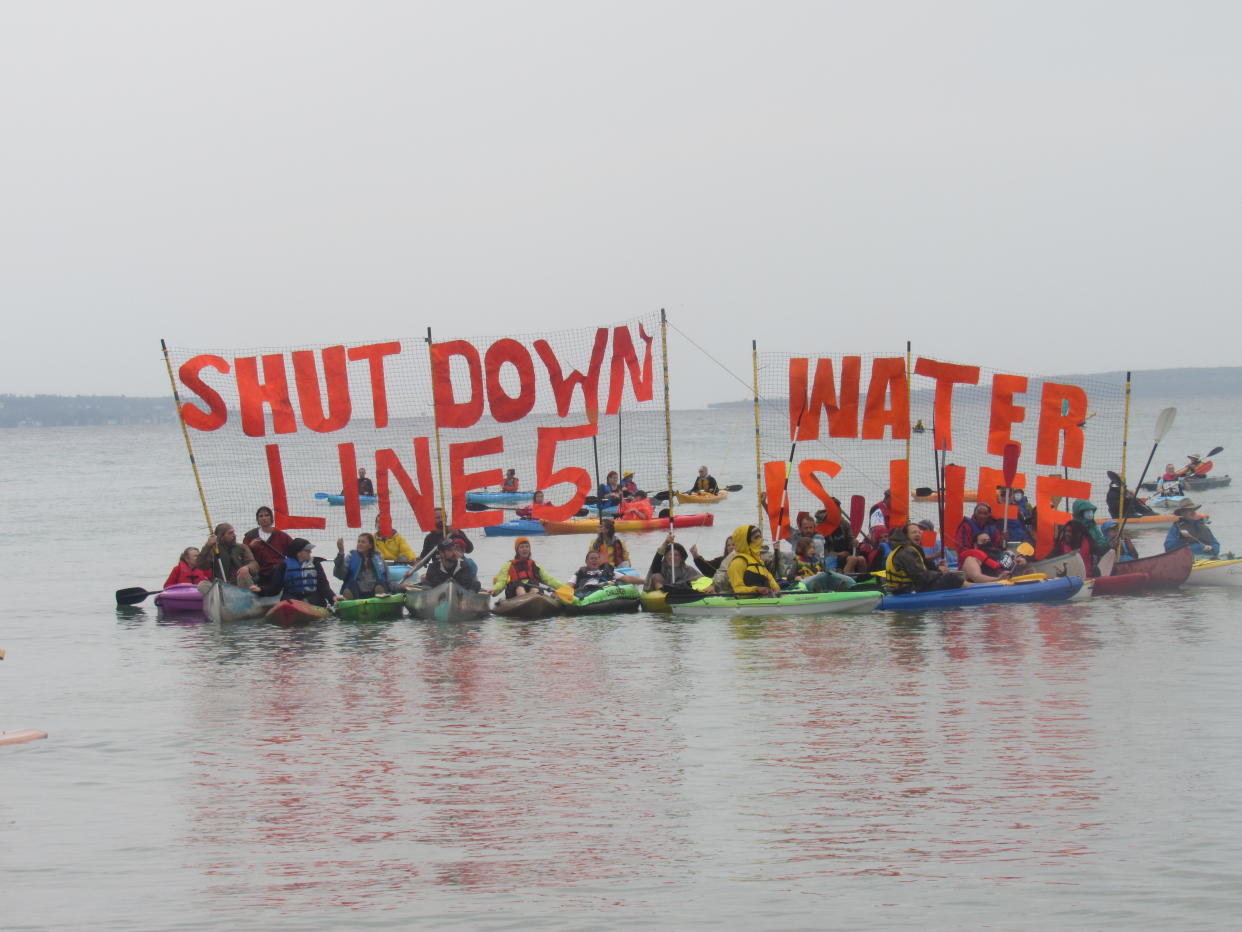Department of Justice Weighs In On Line 5, Tribal Leaders Say It’s Not Enough

The United States Department of Justice filed an Amicus Brief on April 10 siding with Wisconsin’s Bad River Band of the Lake Superior Tribe of Chippewa Indians in their belief that Line 5— a huge underground pipeline carrying fuel from Wisconsin to Canada— trespasses on Native land.
Line 5 is a decade-old 645-mile pipeline operated by Canadian oil company Enbridge that cuts across Wisconsin and Michigan, including a 12-mile stretch of the Bad River Band of Lake Superior Chippewa’s reservation. In 2019, the Band sued Enbridge in federal court to shut down and remove Line 5 from their reservation.
U.S. District Judge Conley ruled in September 2022 that Enbridge has been illegally trespassing and profiting at the Band's expense since the pipeline's easements expired in 2013, but it denied the Band’s request for an immediate shutdown.
Now, for the first time, the Department of Justice has weighed in, upholding the District judge’s opinion that Enbridge is “liable for trespass,” according to the brief. “Federal law provides the exclusive mechanism by which Enbridge may obtain a ‘legal right’ to remain on tribal lands: a right-of-way issued by the Secretary of the Interior,” the brief says.
But tribal leaders and legal experts say that the brief falls short of any corrective measures to protect the Band. Last year, rapid riverbank erosion brought the pipeline within 11 feet of the Bad River current, prompting the Band to ask the judge for an emergency shutdown to prevent an oil spill. The court ruled in June that Line 5 constitutes a public nuisance and ordered Enbridge to shut down the pipeline within the Band's sovereign lands in three years. The court also ordered Enbridge to pay the Band $5.1 million— a fraction of its $1 billion net profits. Both the tribe and Enbridge have appealed the decision in the 7th Circuit Court of Appeals.
"The filing leaves more questions than answers,” Michigan’s Bay Mills Indian Community President Whitney Gravelle said in a statement. “It also leaves Bad River, other Tribal Nations throughout the region, and the 40 million people that rely on the Great Lakes at risk of a catastrophic spill. We fear it will take Line 5 failing again, and the disaster of an oil spill for our position to be taken seriously. This isn't just about tribes, it is about clean water, it is about life. It is about every U.S. citizen and preserving our natural resources for generations to come.”
Bad River Band Chair Robert Blanchard agreed.
"We are grateful the US urged the court not to let Enbridge profit from its unlawful trespass,” Blanchard said in a statement. “But we are disappointed that the US has not unequivocally called for an immediate end to Enbridge’s ongoing trespass, as justice and the law demand. Enbridge should be required to promptly leave our Reservation, just like other companies that have trespassed on tribal land.”
About the Author: "Native News Online is one of the most-read publications covering Indian Country and the news that matters to American Indians, Alaska Natives and other Indigenous people. Reach out to us at editor@nativenewsonline.net. "
Contact: news@nativenewsonline.net

